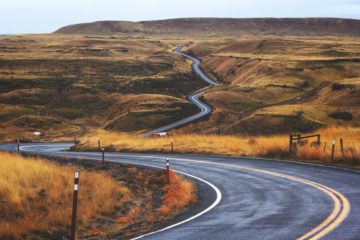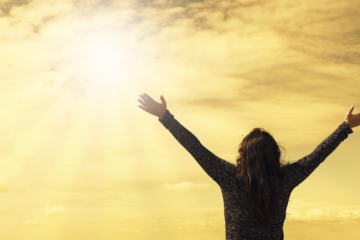Our body has a clock inside it. It is an actual governance system that drives practically everything inside us. It is similar to a heart pacemaker and has, in fact, been often likened to this apparatus. In a world where sleep is seen as almost a waste of time and where people are sleeping fewer hours than ever before in human history, it is worth understanding the inalterable fact – that – like most of nature, our bodies too are directed by the rising and setting of the sun.
We ignore this fact to our own detriment.
Historically, people have known this
Some years ago I read a book about some pioneers in America who started farming in a new area. They used a Farmer’s almanac to help them decide when to plant things. This book told them the best time to plant and harvest certain vegetables and grains, right to the time of day, or the waxing or waning of the moon. Apparently, the time of day, night or month was important in order to harvest or plant out the healthiest plant.
We still use almanacs today. An almanac is an annual publication including calendars with weather forecasts, astronomical information, tide tables and other related tabular information. It is a book of statistical information.

To be honest, I arrogantly thought, at the time, that using a Farmer’s almanac was a lot of whimsical hocus pocus. But then I met herbalists who said they picked their herbs at certain times of day and month to be at their most potent. Then I read that human liver cells, put into a petri dish, start operating by daily rhythms, as they would if still in the body.
We now know that, like those plants that ripen and develop dependant on the rising and setting of the sun, every organ inside our bodies, every hormone driving our activities, looks to the day/night circadian rhythm to set its internal body clock.
This post looks at just a few things in our bodies that are governed by the movement of the earth around the sun.
Sleep hormones and the sun
We feel tired as evening draws on, and alert in the morning – or we will if we obey our body’s signals and go to bed when we are tired! Why? Because our body clock is driving our sleep-wake hormones:
- the stimulating hormone, cortisol, rises quite high just before we usually get up, and drops down low in the evening
- the hormone, melatonin, is released after the sun goes down and really revs up when we turn off the lights and have no ambient light in the bedroom. It makes us drowsy and helps us go into heavy sleep.
Digestion and the sun
If we eat in sync with the rhythms of our body clock and the earth, our food can digest properly.

When we are feeling tired at night time, the body stops producing insulin – digestion is slowing down. Even though food stimulates us, keeping us awake, it is beneficial to eat dinner before about seven PM, then stop eating and eat or drink nothing but water till breakfast the next morning. Stopping eating about three hours before bed will result in a more restful sleep because you are working with the natural body rhythms of digestion.
Try it and see how great you feel the next day. You can read more about this type of intermittent fast <here>.
Our DNA and the sun
The DNA of every organ in our bodies has been found to include genes that are controlled by the circadian rhythm. Mammals appear to have genes that express (do their jobs) at much more rapid rates in the busy hours just before dawn and just before dusk. The RNA which carries the genetic code to the newly forming cell (when cells divide to form new cells) is particularly susceptible to these rhythmic circadian changes. Researchers have described–
“intricate rhythmic orchestration of gene pathways throughout the body”.
Living out of sync with this natural day/night rhythm can cause our genes to express (act) in a negative way, influencing our health. For example,
- instead of switching ON health-protective genes, they may be instead switched OFF
- instead of switching OFF genes coding for disease, they may be switched ON
Obeying the circadian rhythms of the earth causes many genes to operate in our favour, with great effect on our health and wellbeing.
Immunity and the sun
Light – both daylight and electric light – changes our body down to the cellular level.
Bright light exposure at night, particularly the kind of bright blue light that comes from screens, prevents the hormone melatonin from increasing and making us sleepy. This can stop us from quickly entering a solid sleep zone and staying there all night. If melatonin is not reaching a high enough level for a long enough period at night, certain night jobs of the immune system and memory cannot be completed.

These body healing and mental healing jobs require deep sleep. We need time to reach this state and the ability to remain in it long enough. Melatonin is vital for this.
Think of what it would be like if a surgeon waited until you dozed off naturally at night in order to perform surgery – without an anaesthetic – so you woke up quickly once the scalpel touched you, and he or she could now not do the surgery. This is what it is like when we allow bright light in our eyes late at night. We fail to enter a deep sleep for long enough, and our bodies often can’t do their healing jobs fully.
Eventually, this takes a toll on our health, not to mention our energy levels. Mental health also suffers in the absence of proper sleep – as distinct from tranquilised ‘sleep’ which is not true sleep.
Lower concentrations of melatonin at night have been linked to breast cancer in a number of studies <see here>. Melatonin supplementation and better sleep hygiene are therapeutic strategies that are improving the prognoses and quality of life of cancer sufferers.
How we hinder our inner clock
Our body clock is regulated by a part of the hypothalamus in our brains called the suprachiasmatic nucleus. This regulates the day-night cycles of all mammals and is largely responsive to light. It drives all the rhythms of the body we have looked at – plus a lot more we have not looked at.

Light enters the eye, hits the retina at the back of the eye, is carried by a chain of proteins (amino acids) named ‘glutamate’ across to the suprachiasmatic nucleus. The arrows show the nerve message going from the suprachiasmatic nucleus down the brain stem, and other messages coming back up to the little brown gland to the right – the pineal gland. This gland – right in the centre of our brains – produces melatonin hormone – in response to light. As the world grows darker near night time, it starts producing. When light hits the eye, it lowers production so we can wake up properly.
You can see that the structure of our body (the physiology) is such that we cannot fool the body. We may tell our parents or spouse that we are not sitting up late scrolling through our phones, but we cannot fool our bodies. When bright light hits the eye – it is all systems alert, whether we like it or not.
When we mess with our body clock by staying up too late, exposed to bright artificial lights, and then don’t get strong natural light in the morning, we abuse ourselves. Constantly moving our sleep and wake times back and forward throws our natural cycles off-kilter with far-reaching ill effects.
How we can fix it
How can we get our body clocks back in sync with the sun?
Try one or two of these things to start with:
- Put a (dimmer) night light on your phone.
- Don’t look at screens for an hour before bed.
- Go to bed at the same time and get up at the same time each day if possible.
- Get outside in the bright sun within a couple of hours of rising.
- Make sure your bedroom is really dark – thick curtains, any electronics lights covered. Wear an eye mask if you have no control over this.
- Don’t eat anything between dinner and breakfast (and finish dinner earlier).
- Be careful with caffeine.
These are some fairly simple things we can do to experience less fatigue and improve our health.
Notes about jet lag and shift work
Of course, it is also the suprachiasmatic nucleus which is to blame for jet lag – both from changing time zones and from working night shifts.
It’s not entirely possible to trick your body into thinking it didn’t pass through several time-zones.
If you do none of these things below, the best it can do is that for every hour difference from the time zone you started your journey at, it will take a day to adjust.

So for Australians travelling to California, for instance, it is likely to take eight days till we feel completely normal. This is because we are in a time zone eight hours different to our own.
If you follow the tips below, you can help the process along. It is likely you may feel groggy mid-afternoon for only a couple of days and want an early night. After that, you’ll feel better, instead of needing eight days to recover. You can use the same ideas when negotiating night shift changes.
Tips for beating jet lag faster
- When you board the plane, change your watch to the destination time. You may need to take along a manual type watch or clock to manage this). Use THIS clock to time your sleep and meals as much as you can. Try to stay awake with movies or walking about as long as possible through the daytime of your destination. At night time in your destination, put on an eye mask and earplugs and doze off. Give the airline meal a miss if possible.
- When you arrive, get a good hour of sunlight in the morning hours – without sunglasses. If it’s nearer bedtime, avoid looking at screens (blue light) and put on yellow light glasses if you have them. This will increase melatonin production, causing sleepiness or wakefulness at more normal times.
- Start eating meals at the correct time of the destination country – even if you are not hungry. This is as important as light exposure as it sends messages going to our brain for our internal clock.
- In the destination country, try to go to bed at the same time as back home. Try not to go to bed at 6 PM just because you are exhausted. You may wake at 2 or 3 and be ready to get up! Put a glass of water by your bed in case you wake, dehydrated from the plane. You want to avoid wandering around and turning on lights in the night. If you feel wakeful in the night, lie in the dark; try not to get up till at least 5 AM. Train your body to know when the sleeping hours are. Set an alarm and get up before 9 AM and get moving outside. Don’t allow any sleep-ins past that time.
Putting it all together
Making use of
- yellow glasses in evenings – or screens off
- bright sunlight outside in the mornings
- eye masks as the sun is just starting to come up, and possibly,
- melatonin tablets after all else has been tried,
can help our bodies sync more easily with our inner clock.
Any changes we make to sync our lives with the inner body clock will affect our health in positive ways. It is well worth making any changes we can manage now and planning for more as soon as possible.



0 Comments